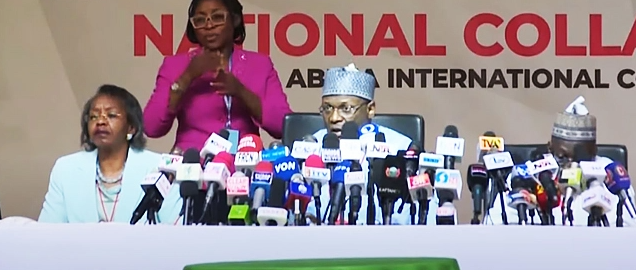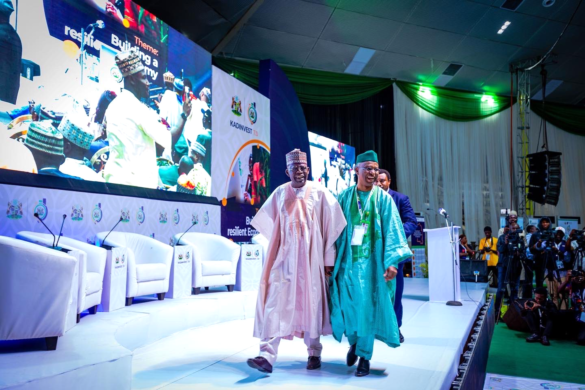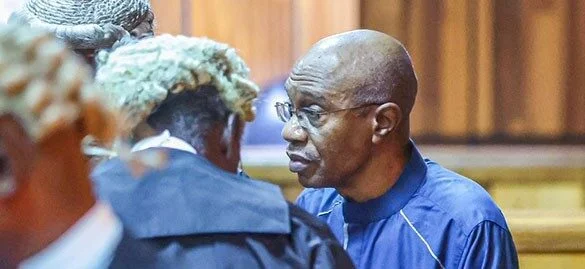The Independent National Electoral Commission (INEC) on Monday resumed the collation of results for the 2023 presidential election at the International Conference Centre in Abuja.
The INEC National Chairman, Mahmood Yakubu opened the floor for day 2 of the national collation around 12 noon.
The electoral chief had adjourned sitting on Sunday night after the presentation of results from Ekiti State. Yakubu had adjourned to enable the state collation officers for the presidential election (SCOPs) in the other 35 states and the Federal Capital Territory.
For Kwara, Bola Tinubu of the All Progressives Congress (APC) polled 263,572 votes followed by Atiku Abubakar of the Peoples Democratic Party (PDP) who scored 136,909 votes.
Peter Obi of the Labour Party (LP) polled 31,166 votes while Rabiu Kwankwaso of the New Nigeria Peoples Party (NNPP) polled 3,141 votes.
In Osun, the APC polled 343,945, LP 23,283, NNPP 713 and PDP 354,366.
For Ondo, the APC polled 369,924, LP – 44,405, NNPP 930, and PDP 115,463.
Mahmood also said the collation of presidential election results will be done at four levels — first at the 8,889 wards, then at the 774 local government areas, then the SCOPs at the 36 states and the Federal Capital Territory will submit the votes per candidate in Abuja.
The electoral chief said the collation centre will be open all day and all night with short breaks.
He also cautioned political parties to only draw their figures from INEC.
“I appeal to all political parties and media organisations to draw their figures only from the official results released by the commission as the only body constitutionally responsible for releasing official election figures,” Yakubu emphasised.
Elections for the office of the President, 360 House of Representatives and 109 Senatorial seats were held in the 36 states and the Federal Capital Territory on Saturday and Nigerians expect the declaration of results by the electoral umpire.
Though 18 candidates are in the race, pollsters and analysts have described the contest as a four-horse race between Kwankwaso, Atiku, Tinubu and Obi.
While Obi and Tinubu are from the southern region of the country, Kwankwaso and Atiku come from the northern part of Nigeria. The four heavyweights and strong contenders have large followings with the numerical potential of emerging as the successor of President Muhammadu Buhari whose two-term tenure ends on May 29, 2023.
Elections were held at most of the 176,606 polling units in Nigeria as 87.2 million voters with Permanent Voter Cards voted for their preferred candidates.




